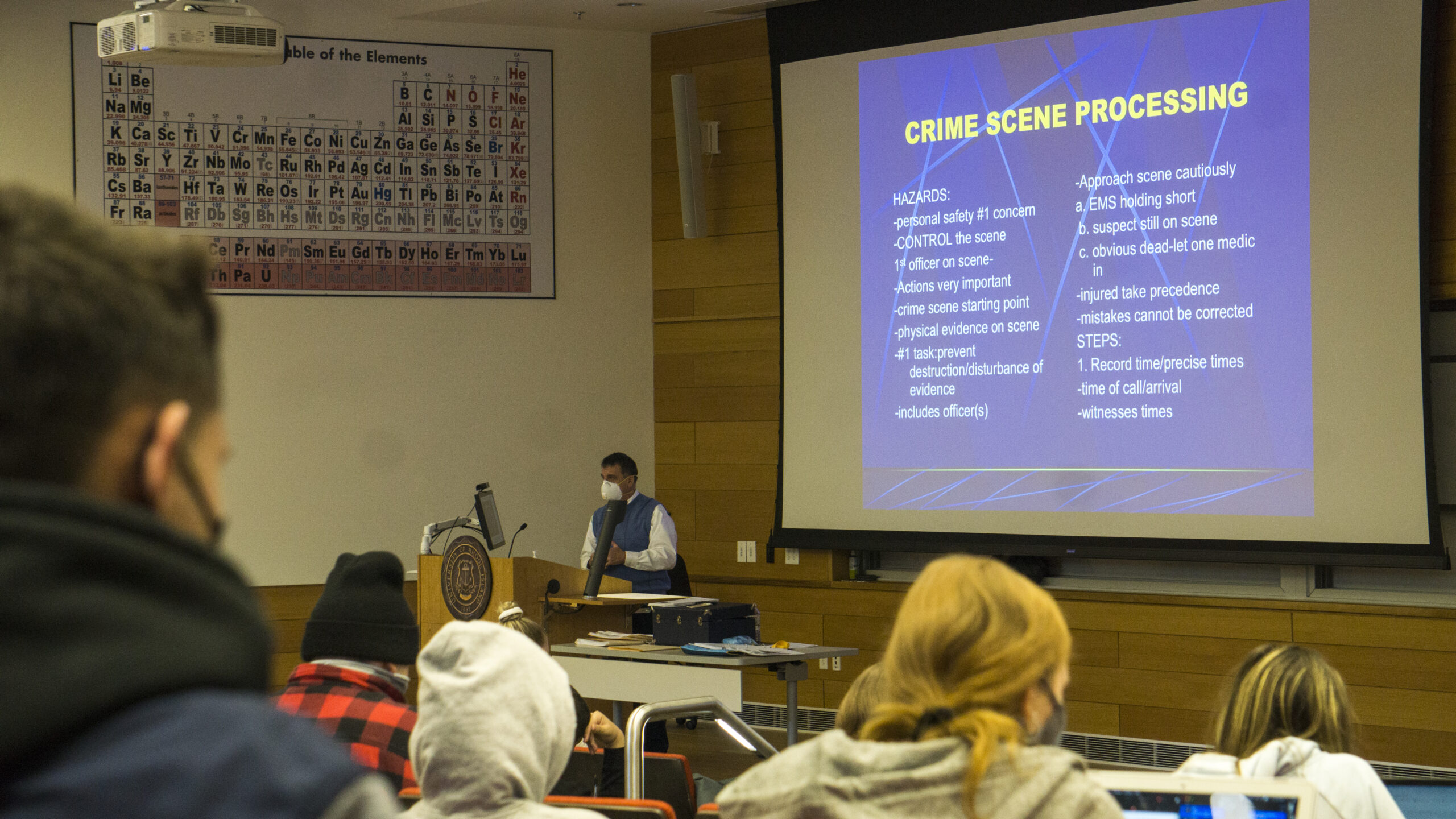Deputy Sheriff Paul F. Souza describes to URI students the truth about crime scene investigations. Photo by James Singer.
This Thursday, Deputy Sheriff of Plymouth County, Massachusetts Paul F. Souza spoke to students about crime scenes at this week’s annual Forensic Seminar Series.
The series, which has been directed by University of Rhode Island chemistry Professor Jimmie Oxley for 21 years, will feature speakers from many different facets of crime-solving and forensics this year.
“Twenty-one years ago, our president wanted the University to have crime and forensic centers,” said Oxley. “This was the first class we organized in order to get a forensic program.”
Oxley also said that the class is helpful for students in more than just the criminal justice program. According to her, there is a forensic track that can be paired with any majors, even non-science ones.
The University was determined to go through with the series despite the pandemic. Due to COVID-19 regulations, limited seats were available, masks were required and attendees had to keep a 14-foot distance from one another. To ensure the class could still run with hybrid scheduling, Oxley chose guest speakers from Connecticut, Massachusetts and Rhode Island so they can travel safely, rather than flying in, as some speakers have in the past.
The series can also be attended virtually through live streams set up on the class website. Because of this, Oxley said that there has been an increase in elderly and out-of-state viewers watching the seminars as a form of entertainment.
This week’s seminar featured Souza, who is a Certified Crime Scene Investigator (CCSI) as well as a Certified Latent Print Examiner (CLPE).
Souza described the different types of crime scenes that he has encountered, from crimes as simple as a stolen bike to homicide and arson. He also shared information on what types of substances are common and important to look out for at a crime scene and in photos. One crime scene Souza used as an example was the Boston Marathon bombing that happened in 2013. Souza showed photographs of victims of the attack as well as pictures of emergency personnel responding to the attack and explained what they were doing, why it was important, and how it fit into the acronym R.E.S.P.E.C.T.
The acronym lists the seven steps for crime scene investigation: Respond to the situation, render Emergency care, Separate bystanders, Protect the scene, collect Evidence, Corroborate the evidence and Testify. Souza’s lecture on this acronym and what it stands for are the basis for responding to a crime scene.
Souza also shared advice from his years of personal experience working at over 20,000 crime scenes.
“We don’t want to touch what we don’t have to, and we don’t want to move what we don’t have to,” Souza said. “You may have moved something or kicked something inadvertently, own up to it.”
Other advice shared included topics such as when to turn on lights and sirens while in a police cruiser and what to do if the scene being approached is one that still could have a perpetrator nearby. For more dangerous scenes, Souza said that he usually would refrain from using lights or sirens until he was only five blocks away from the location of the crime.
The series will be held every Friday in Beaupre Center for the remainder of the Spring 2021 semester. Certain segments will be available for live-streaming on the class’s website, where the schedule for the upcoming topics and guest speakers is also available.





